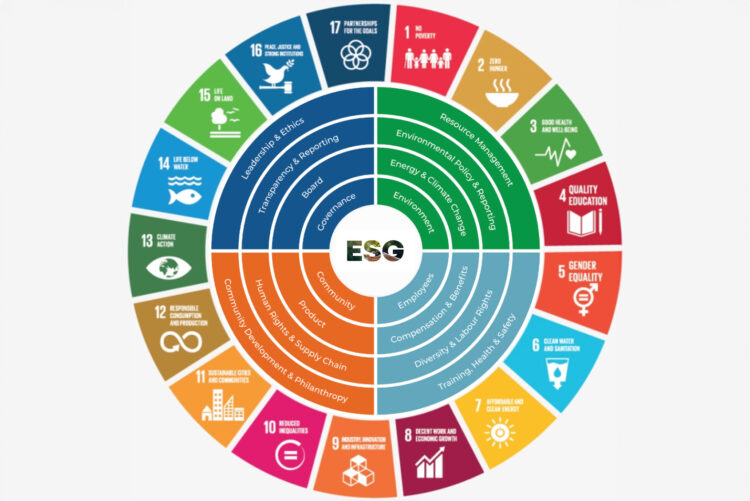ESG has become a key differentiator for the investment community

Opinion
With investors demanding to see good sustainability records and boardrooms looking more closely at media supply chains, businesses need to keep ESG top of the agenda.
Environment, social and governance (ESG) is something no company can ignore.
The United Nations 2030 Sustainable Development Goals (UNSDGs), signed by 196 nations in 2015, are the big sustainability challenges that the world faces and must be achieved to put us on course towards our planet’s 2050 net zero targets.
The global financial investment community is already heavily influenced by ESG and, by 2025, $53tn — a third of all assets under management — will be invested towards future-focused companies that help reach the UNSDGs.
So sustainability is the right thing to do and it’s good for business.
Benefits in short and long term
Much of the sustainability agenda pays back in the short and medium run and, by definition, it’s good over the longer run. There’s not much business to be done on a dead planet.
Climate change is threatening humanity and costing businesses and economies a fortune. Germany’s Potsdam Institute for Climate Impact Research estimates a 19% hit to global GDP — or $38tn annually by 2049. This translates to serious costs for companies and communities.
Behavioural change is key. The Intergovernmental Panel on Climate Change states that having the right policy structure and technology in place to enable changes in our lifestyles and behaviours can result in a 40-70% reduction in greenhouse gas emissions by 2050.
Sustainability regulations aren’t going away either. A recent Accenture survey found that 90% of global chief financial officers expect ESG issues to be a major focus over the next five years.
Also, investors aren’t letting it go. BNP Paribas recently said it will require companies that it invests in to put climate action into executive compensation metrics.
AI and sustainability
AI has created a vortex for our attention and investment, especially within the media industry, moving the sustainability agenda backwards.
We cannot lose sight that adtech already accounts for 3.6% of our planet’s greenhouse gas emissions (more than the aviation industry!) and these emissions are already surging nearly 50% due to AI energy demand with some tech companies.
Assessing an organisation’s supply chain through an ESG lens is now vital, with companies increasingly concerned with mitigating risk and being a proactive force for good in wider society. The financial industry has already started pulling investment from Tesla due to its ownership — compelling reading in light of what’s recently happened with the Global Alliance for Responsible Media.
Mergers and acquisitions leaders want to buy companies that show they understand ESG. A recent Deloitte survey stated that 83% would pay a premium to buy a company with a solid ESG performance and would want a discount if ESG ratings are weak. In fact, 73% have “scuttled a planned M&A because of findings during ESG due diligence”.
‘Weaponised’ litigation: Industry stands ground against X following GARM shutdown
Looking in the mirror
As a result, companies now understand that their supply chain is a direct reflection of themselves and affects their own ESG ratings too. If you buy from a supplier with a poor human rights record, you are condoning this behaviour and this, seen by ESG analysts, will impact your ESG score.
Another reason boardrooms are demanding ESG data is to ensure they have a clean investment supply chain. They are asking their marketing departments to demonstrate their media investments — a significant part of a brand’s revenue — are clean or improving. Omnicom, GroupM, Publicis and Total Media were the first to offer this to clients and prospective ones as sustainability and ESG become key elements in pitches.
With visible ESG scores, it’s important to understand if the investments we’re making with a supplier are the right ones. Decisions can’t be made solely based on data, but it should be the bedrock to form objective supply chain investment decisions.
Education is needed in our industry on both ESG and UNSDGs — the countdown to 2030 is now only five years away.
 Andy Power is CEO of Legacy Media
Andy Power is CEO of Legacy Media




